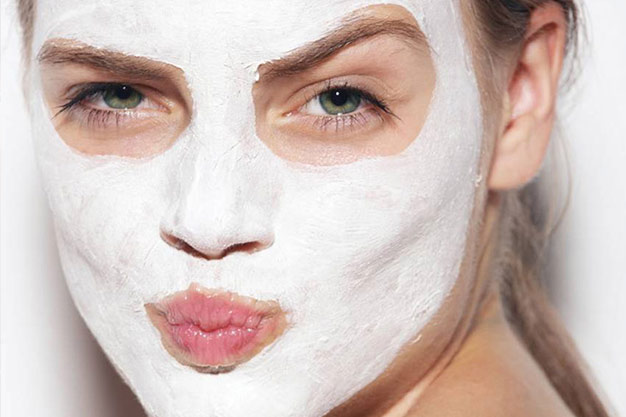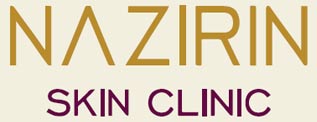
Given that makeup has become optional, and that sun exposure is kept to a minimum, and the environment we sequester ourselves in all day has changed entirely (goodbye dry office air), what then, happens to our skincare routine?
Skincare during quarantine is a different breed. Not dramatically so, but it does warrant some paring back, just as in every other area of one’s life during self-isolation. The big questions come up when reckoning with what we need to cull, what we ought to ramp up on, and where our skin requires attention now that we are perpetually home-bound.
For those with a four-step routine currently shrugging and thinking, “honestly, it’s not that deep”, this might not be the resource for you. For everyone else hugging their staple arsenal of ten jars to their chests wondering, for the very first time, if this essential routine has become less of a need and too much of a want, then we’re here to help with our do’s and don’t for skincare during quarantine.
How minimal should skincare routine be now?
COVID-19 forces us to consider the essentials, and the same applies to skincare. You really want to hone in on the staple skincare quad to tide you over quarantine: a cleanser, a chemical exfoliant, a moisturiser and a sunscreen.
These four products serve the basic needs of your complexion: cleanliness, exfoliation, hydration and protection. Everything else you’re adding on top can take a backseat if necessary, though serums that offer you hydration and anti-ageing benefits can still remain. Our skin’s clock doesn’t slow for no virus.
How to build a minimal skincare routine
- To build a minimal skincare routine, one must first address what your skin really needs. A low pH face wash is essential (double cleanse if you wear makeup and sunscreen), a chemical exfoliant is non-negotiable, a serum is important, and a moisturiser seals the deal.
- Products differ based on the time of the day, but not too dramatically. Use a BHA to clear pores during the daytime, and an AHA or retinol at night. The latter is used at night because AHAs exfoliate the surface of your skin, making it more vulnerable to UV rays.
- Daytime moisturiser must have SPF, while nighttime one is a simple night cream that can hydrate and help tighten skin as you sleep.
- Serums also differ from night to day, but again, this depends on what you use and how seriously you take your skincare. If you’re part of the bare minimum crowd, you want a serum that can serve your skin’s general health — a hydrating or anti-ageing booster, for example. For those lazy, but willing to go that extra mile (or product) to target your skin’s woes, then have a couple on hand, e.g. use a vitamin C blend during the day for brightening and an anti-ageing one for night.
-
Streamlining is fantastic, but this does not mean all the frills and fixings of skincare are irrelevant. Masks, essences, lotions and treatments all still deserve a place on your shelf but treat them not as items you have to incorporate on the daily, but as accessories to your skincare outfit. On days where you feel like you need to treat yourself, or tackle a heavy-duty skin issue, get that mask on. For more hydration, use a lotion, an essence, or stack on your serums.
Skincare is only overwhelming when you let it get there. Once you learn how to approach care for your complexion in a fixed manner, with products that are essential and effective, versus occasional and a luxury, you are armed with the knowledge on how to build a regimen that’s fast and effective.
Should I have new skincare concerns?
Not exactly, though there are areas you can focus on more intently. Having stress-related breakouts, for one, might be a situation will face, or an increase in your blue light exposure another, (and we have tips to address these below). It truly comes down to your new working environment.
For example, if you are still spending long hours exposed to air conditioning or in drier air, then hydration should be a priority. If you’re spending long hours working at the balcony, where there is sunlight, then you want to ensure that you’re protecting your complexion, and maybe investing in a vitamin C serum to bolster your skin’s photosensitivity.
Do I really still need to wear sunscreen?
Yes, unless you’re living in a unit with no windows or little proliferation of natural light, you do need sunscreen. UV rays are able to enter the house via glass, and now that you’re probably plonking yourself near a window to get as much natural light as you can while stuck indoors, your skin needs that shield more than ever.
Another key benefit of sunscreen is that most mineral ones that contain zinc oxide can protect against blue light as well, another all-too-present stressor our skin tackles on a daily basis.
The stress of living is making me break out. How do I curb it?
Stress brings out the worst in our body thanks to the surge in cortisol it undergoes. Cortisol triggers other reactions to our complexion — excess sebum production and hormonal acne are two of the most common — so it’s normal that you might be suffering a breakout right now.
You can help soothe it by integrating salicylic acid into your everyday regimen if you have not already. Simply applying a lotion or using a salicylic acid pad with a concentration that hovers around 4 percent does wonders to help reduce the plague of pimples you might be encountering.
Furthermore, a clay mask can help with removing impurities that exacerbate acne if you do it once a week, or twice a month.
Speaking of masks, how many can I do a week?
Sheet and face masks have surged on social media of late as the perfect work from home accessory. Honestly, you rarely get to pamper yourself while clacking away at the keyboard and still have it be considered work. Still, lines have to be drawn. There is no serious harm in doing a sheet mask daily, but for those with sensitive skin, this sudden increase in concentrated care can pose issues.
Masks serve as treatments and instruments for pampering, but overindulgence is a real issue. We’d advise listening to your skin and using out what it needs before addressing it with a face mask. Alternatively, if you just enjoy the rest and relaxation that it offers, anywhere from once a week or thrice a week is a reasonable amount for your masking pleasure.
Do the surgical face masks I wear outdoors pose any effect on my skin?
Surgical face masks are a crucial defence against COVID-19, but having your face cloaked by a humid sheath that breeds bacteria the longer you wear it can wreak havoc on your complexion. However, if you’re wearing it for short stints every day, you have little to worry.
Those who use it for prolonged periods, be sure to cleanse your skin with a low pH facial cleanser to cull bacteria breeding, and have a salicylic acid product ready in case of a breakout.


